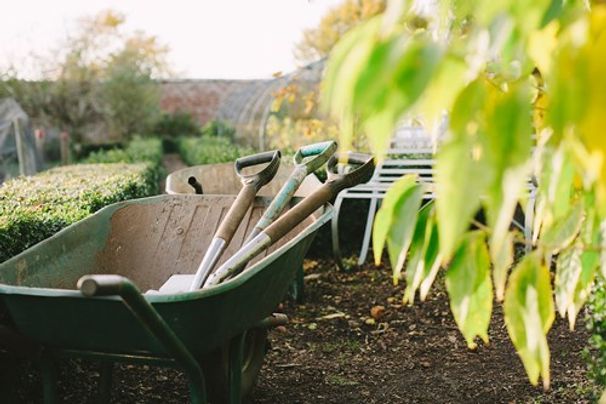Regardless of whether you’re a Marie Kondo-convert or minimalist declutterer, you simply can’t deny the life-changing magic of tidying up. A clutter-free household results in a clutter-free life, where keys are easy to find, toys are always put away and the household is significantly more manageable on a day-to-day basis.
However, clutter is not limited to the inside of a house. A garage can often become a cornucopia of tools both useful and broken, and a garden can be overrun with worn-down pots, while balls, bikes and all manner of toys are often left strewn across the lawn.
None of which makes for a garden of peace and serenity.
ProScapes has some excellent advice on how to cut a swathe of calm through your outdoor area with some simple decluttering tricks.
1. Pick your pots
“Collect all broken pots, and pots with dead plants in them. Sort the salvageable plants from the truly deceased and group them together in one place, and display your best pots as a group – then discard the trashy ones.”
2. Get a hold of the play equipment
“Collect all the toys and balls strewn around the garden and keep them together in one place, such as in baskets or appropriately-sized boxes, It will instantly make a garden look more restful.
3. Create your own serenity
Create a designated area to sit and be calm, with or without a table.
4. Tidy up the boarding
Get around to painting a fence or creating a privacy screen with plants can do wonders for a garden and is an easy transformation.
5. Sort out your greenery
Relocate any plants that are arranged haphazardly in the garden and give them purpose, such as putting two of the same plant by the front door, or grouped into feature displays.
Other quick tips to sort out your garden
- Just let go. Let dead plants, broken tools, and salvaged ornaments that were never refurbished go on to their next life and either donate or discard them thoughtfully.
- Embrace a ‘less is more’ approach and allow your garden to feel a little empty before filling it with fresh plants, pots or garden furniture.
- Decide how many tools you really need, and dispose of any double-ups, broken tools or unused items.

